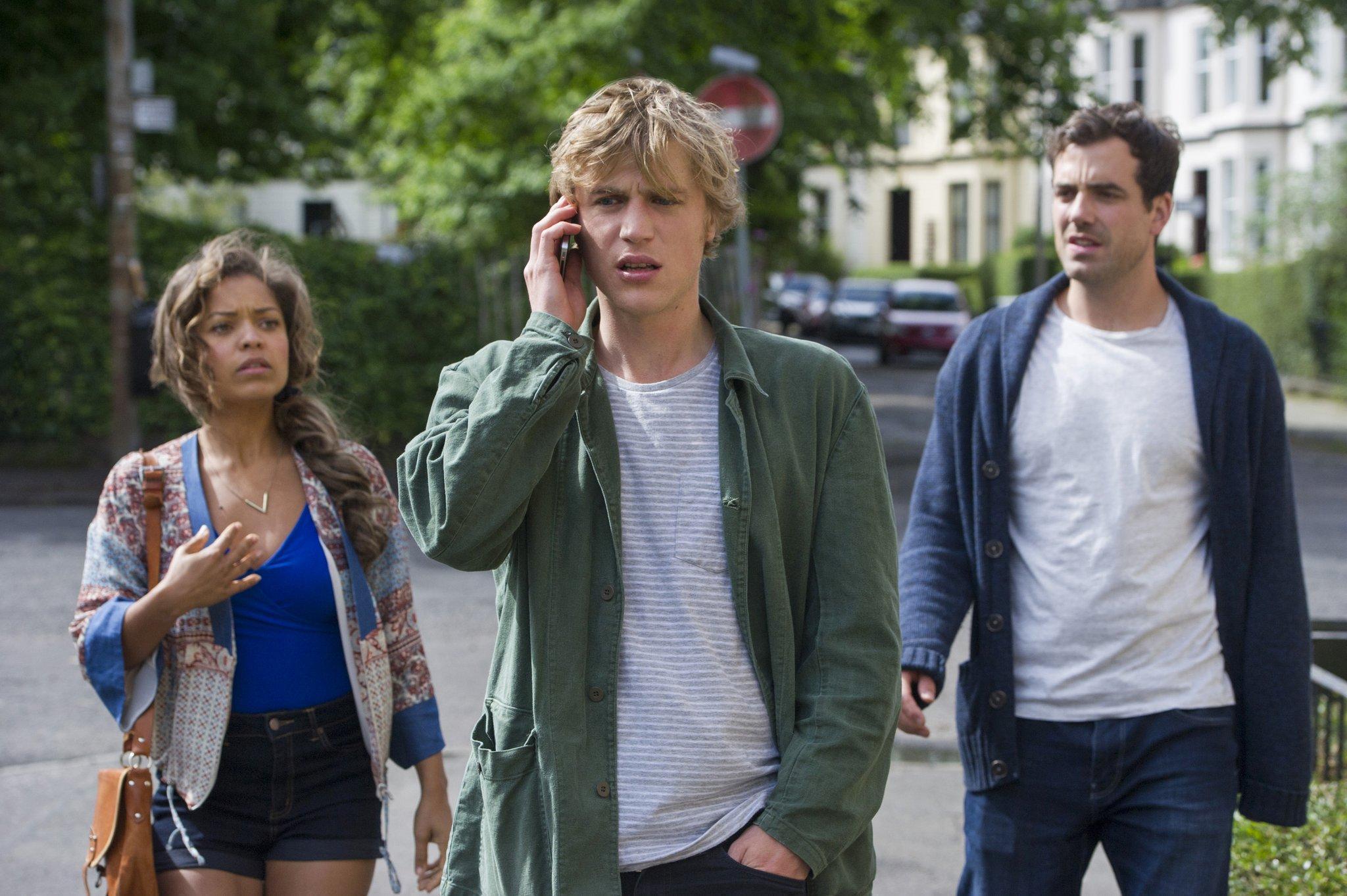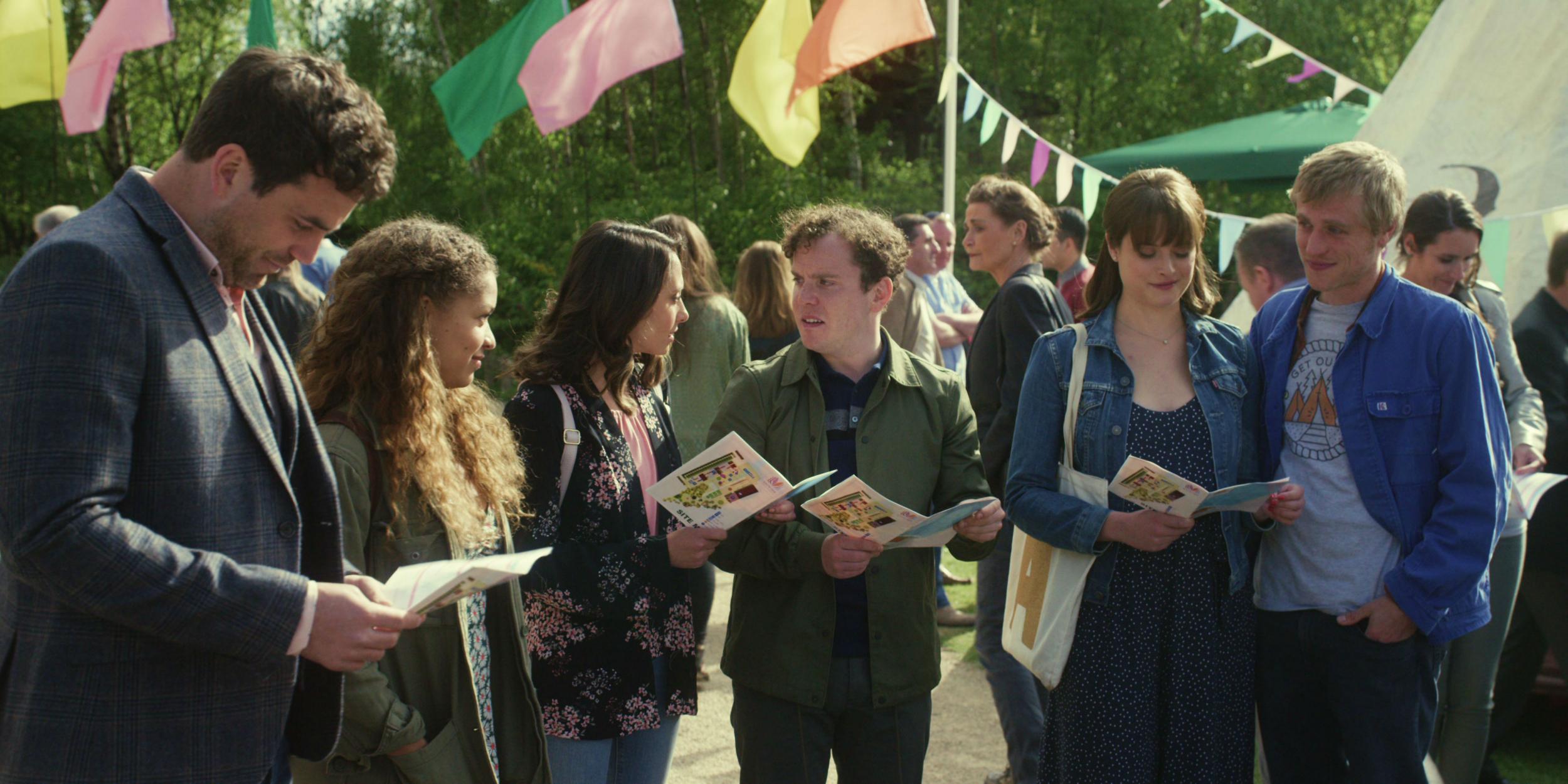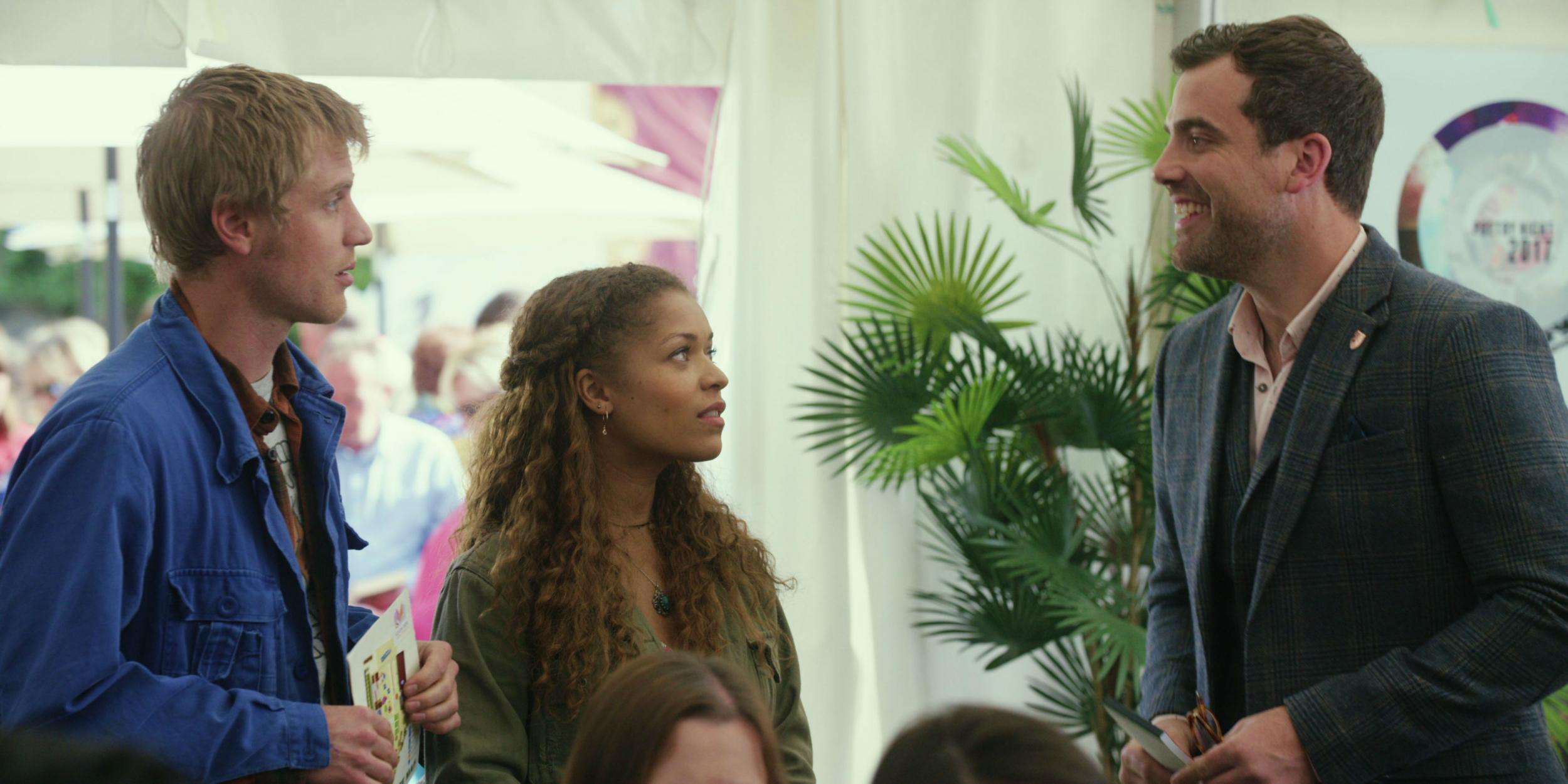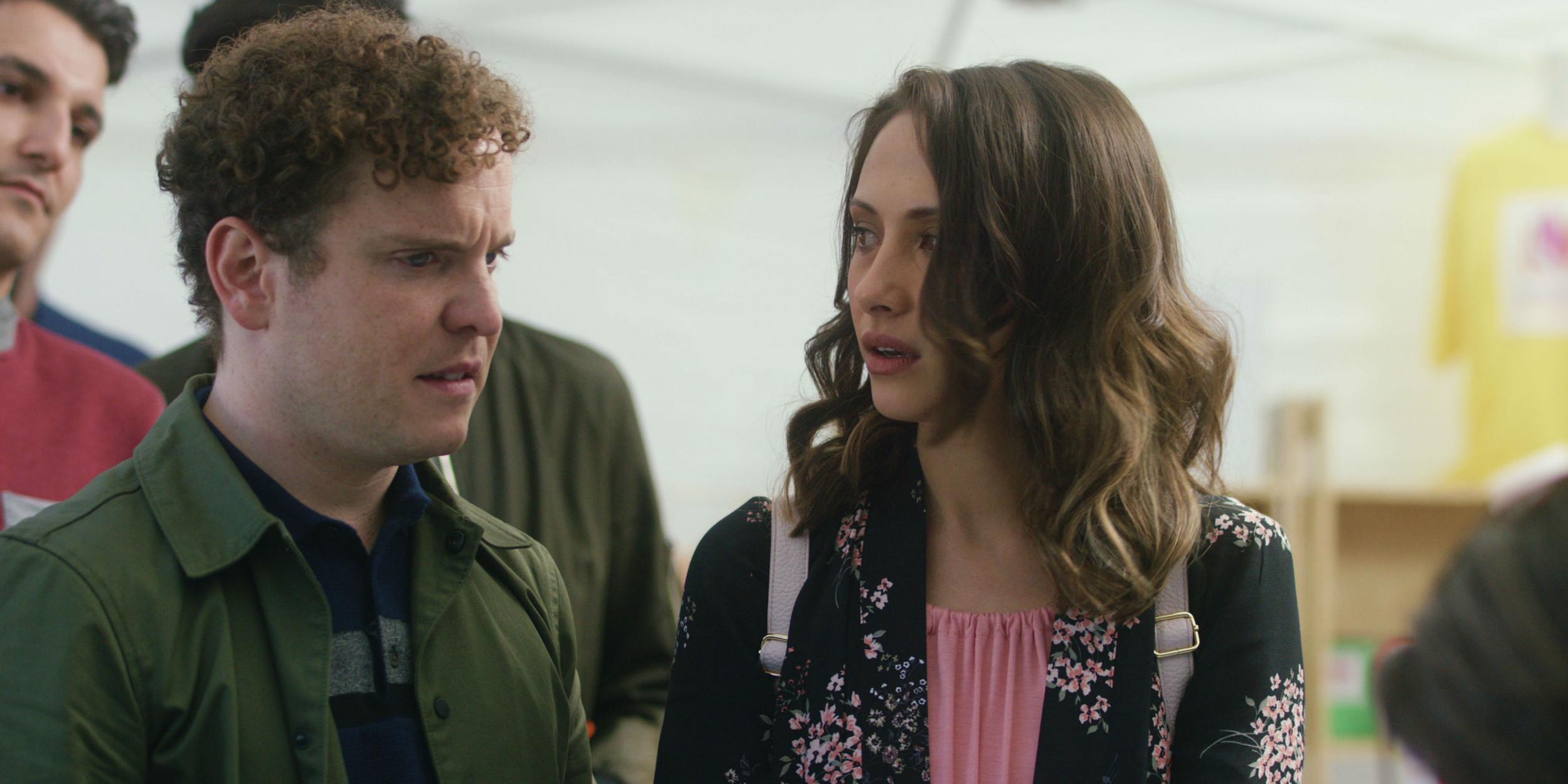The romcom isn't dead: It's just become less recognisable
While Hollywood has largely turned its back on romantic comedy, the genre is thriving on the small screen. Gerard Gilbert talks to the creator of the left-field Netflix series ‘Lovesick’

Your support helps us to tell the story
From reproductive rights to climate change to Big Tech, The Independent is on the ground when the story is developing. Whether it's investigating the financials of Elon Musk's pro-Trump PAC or producing our latest documentary, 'The A Word', which shines a light on the American women fighting for reproductive rights, we know how important it is to parse out the facts from the messaging.
At such a critical moment in US history, we need reporters on the ground. Your donation allows us to keep sending journalists to speak to both sides of the story.
The Independent is trusted by Americans across the entire political spectrum. And unlike many other quality news outlets, we choose not to lock Americans out of our reporting and analysis with paywalls. We believe quality journalism should be available to everyone, paid for by those who can afford it.
Your support makes all the difference.Think of the term “romcom” and what springs to mind? Colin Firth and Hugh Grant in their prime? Meg Ryan faking orgasms for Billy Crystal or firing off wistful emails to Tom Hanks? Julia Roberts in Notting Hill or Renee Zellweger as Bridget Jones? The Wedding Singer, 50 First Dates or My Big Fat Greek Wedding? The truth is that, for the past 10 years at least, Hollywood has been turning its back on the genre that gave it so much success in the 1990s and early 2000s.
Yes, Bridesmaids caused a stir in 2011, but was more about BFFs than finding “the one”, while The Hollywood Reporter officially declared the romcom to be dead in 2013, the year in which not a single example featured among the top box-office performers. But then perhaps the venerable trade magazine was being premature or was looking in the wrong place – because television, in particular the streaming variety with its more adventurous remit, was sparking new life into a jaded format.
“By the mid-2000s there was a slightly lazy and rushed formula and lot of those romantic comedies ended up feeling codified down to the minute”, says Tom Edge, the creator of the best of the millennial romcoms, Netflix’s Lovesick. “You could pretty much set your watch by the twists and turns in that relationship.
“Not in all corners but I think there was a growing cynicism about the primacy about finding enduring romantic life in modern people’s lives, the swept-off-your-feet and kissed-by-a soulmate stuff began to feel slightly old-fashioned and limited”, says Edge. “One thing a returning TV series gives us is the chance to explore some of that and play with the disjunct between how people’s fantasies of ‘the one’ play out the morning after, and the weeks and months after.”

You can’t accuse Lovesick, which returns for a third season on Netflix on 1 January, of a traditional meet-cute set-up. It tells of Dylan (played by Johnny Flynn) who gets back in touch with all his girlfriends because he’s been diagnosed with chlamydia. The first series aired on Channel 4 in 2014 with the memorable title Scrotal Recall, which made it sound more like The Inbetweeners than the thoughtful and sweetly optimistic comedy that it is.
“Initially Scrotal Recall was on a long list of possible titles with ‘not this, obviously’ attached to it, but we just got used to the shock of it and indeed the inappropriateness of it for the show’s tone,” says Edge. “It’s often assumed that Netflix said ‘you really ought to change the title’, whereas it was us because it has tones of sweaty frat-boy comedies which isn’t what we set out to make.
“Mind you Netflix did survey several thousand North Americans who had watched the show and rated it well and found a staggering proportion of them wouldn’t mention it to friends and family on the grounds of they would have to say the word ‘scrotal’ out loud.”
The other distinctive element to the renamed Lovesick was the way in which Edge flipped back and forth between these past relationships, and the present – with Dylan’s will they/won’t they ‘friendship’ with the ultimately well-suited Evie (Antonia Thomas from Misfits) being the show’s over-arching romance.
“A lot of the romantic comedies my co-producers and I enjoyed have often involved protagonists looking back and trying to figure out something about themselves or a relationship that has ended”, says Edge. “The ones we ended up talking about were Annie Hall, which begins with “Annie and I broke up”, High Fidelity, in which the protagonist surveys relationship crashes, When Harry Met Sally and even Groundhog Day.

Watch Apple TV+ free for 7 days
New subscribers only. £8.99/mo. after free trial. Plan auto-renews until cancelled

Watch Apple TV+ free for 7 days
New subscribers only. £8.99/mo. after free trial. Plan auto-renews until cancelled
“A lot of the romantic comedies I enjoyed had that melancholic introspective sense to them, looking at that central relationship through the prism of the relationships that come and go over a 10-year period – that seems to me like something quite authentic to many people’s post-university years. Then it occurred that this old bacterium story gives us a novel way to chart a map through all of the relationships that didn’t work along with the one that you hope will.”

By “this old bacterium story”, Edge is referring to the chlamydia plot device, and it’s not many romcoms that have their genesis in a genetics laboratory. In 2009 Edge was doing some research work for Channel 4 at the Wellcome Trust near Cambridge and interviewing some of the department heads who helped crack one-third of the human genome.
“One of the jobs was tracking human migration over tens of thousands of years and it was now possible to say this tribe of Native Americans living in Arizona were actually from Pakistan 50,000 years ago,” says Edge. “I started thinking what is the smaller everyday version of that story and started to think of a chlamydia bacterium, so you could create a map of a group of people from that.”
With such high-minded beginnings, I wonder whether Edge feels insulted when I say that the friendship dynamic in Lovesick reminded me of Four Weddings and a Funeral. “I wouldn’t be insulted in the slightest. I would be thrilled”, he replies. “I remember when Four Weddings came out, it was an astonishing cultural moment. I have a sincere affection for that kind of movie-making.
“I think it’s very difficult to do as well. When you look at something like It Happened One Night [Frank Capra’s 1934 classic starring Clark Gable and Claudette Colbert] you have the easily understood Romeo and Juliet social problem of she’s a spoilt heiress and he’s a journalist from the tougher side of town. I think all those historic class difference have either been worked to death or they’ve dissolved so actually the barriers to two people who like each other and have great chemistry are relatively slim.
“That’s why you end up with what looked like the death throes of romantic comedy in the late 1990s and early 2000s where the contrivances at keeping people apart became thinner and thinner.”

The romcom has found other ways of thriving on the small screen, mainly by moving away from ‘the woman-in-search-of-everlasting-monogamy’ template. Crazy ex-Girlfriend has a female protagonist with bipolar disorder, while Master of None shifts the romantic search on to the male protagonist and Sharon Horgan and Rob Delaney’s Catastrophe begins with a one-night stand, continues swiftly with a pregnancy and then looks at how the relationship pans out.
“One thing a returning TV series gives us is the chance to explore some of that”, says Edge. “And play with the disjunct between how people’s fantasies of ‘the one’ play out the morning after, the weeks after and months after.”
“I am optimistic by nature and don’t hold the more romantic characters in the show in contempt, our take on all this is liberated by not having to wrap things up with a kiss.”
Edge, who penned the “Paterfamilias” episode in this season of The Crown, the one which switches between Prince Charles and Prince Philip’s experiences of Gordonstoun public school, has also written Judy, the Renee Zellweger movie about Judy Garland’s final visit to London in 1964, which begins filming in February. I ask him how he thinks the boom in internet dating, which by some accounts is killing the art of romance, will play into the romcom.
“Our show began in 2014 and they are looking back over an era that is just ahead of the swipe-left culture,” he says. “If the show was looking back over the last couple of years then Luke [Dylan’s rather more shallow best friend, played by Daniel Ings] would have a mobile phone permanently in his hand. Dylan though would recoil from something that would represent the commodification of love and romance.”
Married and with two small children, Edge admits it’s a while since he last experienced the dating scene. “My last experience of dating was well before an app on my iPhone could sort everything out”, he says. “But the fundamentals the show looks at is those moments when two people are trying to tease out of each other what they want out of each other and how they see the world and whether there is any chance at all those things can lock alongside basic attraction.
“I can only hope that for the younger generation coming up that those sort of questions remains as acute as ever and they don’t simply rely on their phone so say ‘you know what; it’s a 97 per-cent match, get over your misgivings’.”
‘Lovesick’ season 3 begins on Netflix on 1 January
Join our commenting forum
Join thought-provoking conversations, follow other Independent readers and see their replies
Comments